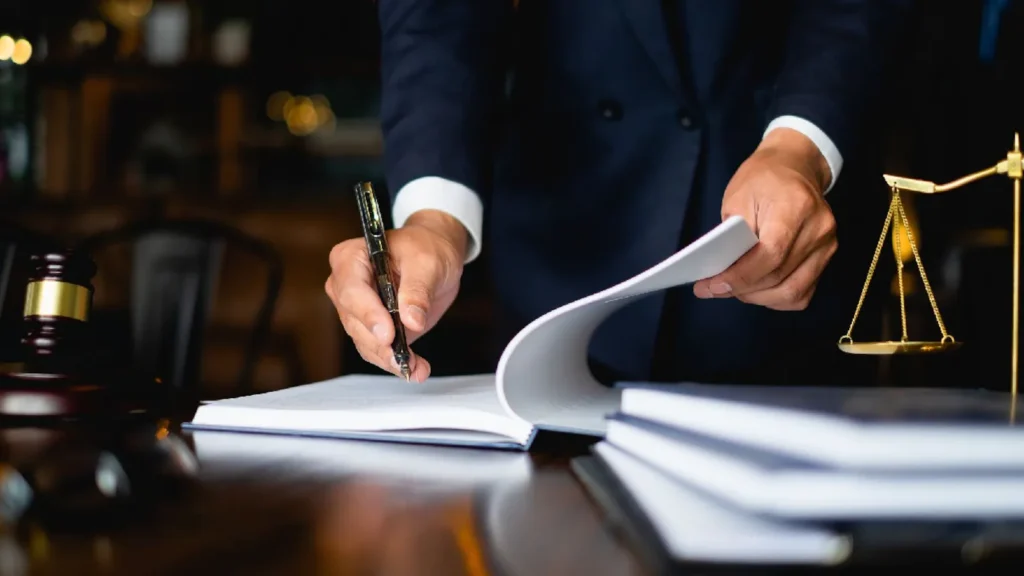Product liability is an area of complex law that regulates the legal responsibility of manufacturers, distributors and sellers in relation to injuries or damages caused by products. The two main legal theories that consumers can use to sue the manufacturer for defective products are negligence and strict Liability.

STRICT LIABILITY
Strict Liability holds all manufacturers, distributors and sellers of products liable for any damage caused by the product, whether or not they are negligent. In strict liability cases, an injured party doesn’t need to prove the seller or manufacturer was negligent or careless in any way.
They must instead demonstrate three key components:
- The product is defective: The consumer must prove that the product in issue was defective to a degree that rendered it unreasonable and dangerous when used in its intended manner or in a reasonably predictable way. Defects may occur in the design, manufacture, or labelling stages of the product.
- The defect is responsible for the injury or damage: A plaintiff must prove the defect of the product was directly responsible for their injuries or damages.
- The product was used in the way intended by the manufacturer/seller. The injured party must prove that the product was being used as intended.
It simplifies the legal process, which is a major benefit for injured consumers. The injured consumer does not need to prove the seller or manufacturer was negligent. It can be difficult and time-consuming. They only have to prove the three elements mentioned above. It is easier to claim compensation when injured parties can prove that they have suffered damages.
A second benefit of strict Liability lies in the fact that it puts a heavy burden on sellers and manufacturers to make sure that their products are safe. Companies are encouraged to conduct rigorous safety tests and quality checks because they know that any defect in their product can make them liable.
But strict Liability also has its downsides. It can result in higher costs for the manufacturers, which are then passed onto consumers via increased prices. In addition, strict Liability can discourage companies from developing innovative products because they fear Liability, even when they take all reasonable precautions.
NEGLIGENCE
Contrary to strict liability theory, negligence requires that the injured party proves that the manufacturer or distributor was negligent, resulting in the defective product and the subsequent harm. In order to establish negligence in a case of product liability, the plaintiff will need to show four elements:
- Duty Of Care: In order to prove that the defendant had a duty of caring towards consumers, the plaintiff must show this. This duty is usually based on the relationship of the parties as well as the risks that are associated with the product.
- Breach Of Duty: In order to prove the defendant’s breach of duty, the injured party must show that they have failed in their duty. The injured party must prove that the defendant did not meet the industry standard of care, for example, by failing to conduct proper safety tests or provide adequate warnings.
- Causation: The plaintiff must give a causal connection between the defendant’s breach and the injury or damages suffered. It is necessary to prove that the defect in the product, caused by the defendant’s negligence, was the source of the harm.
- Damages: Lastly, the plaintiff will need to quantify the damages that they have suffered due to the defective product. Lost wages, medical expenses, pain and suffering are all possible.
Negligence comes with its advantages and disadvantages. It is a good thing that the emphasis is on individual circumstances and faults. A manufacturer may not be held negligent if they can show that they took reasonable precautions, acted responsibly, and designed and manufactured their product.
In addition, negligence is a nuanced way to determine Liability. This system takes into consideration the specific actions, or lack thereof, of the manufacturer.
The negligence standard is more difficult to prove for injured consumers. They must gather substantial evidence in order to prove that the defendant’s actions or inactions were negligent. It can be a long and expensive process involving complex legal proceedings.
COMPARING NEGLIGENCE AND STRICT LIABILITY
A variety of factors often influence the choice between strict liability or negligence in product liability cases. These include the circumstances and facts surrounding the case, the evidence available, and legal standards within the jurisdiction.
Compare the following key features of both approaches.
- Proof Of Fault: Strict Liability does not require proof of fault or negligence. It is easier for consumers to pursue strict Liability.
- Standard of care: Negligence is a violation of the standard of reasonable care. This breach of the standard of good judgement does not need to be proven under strict Liability. Manufacturers and sellers can be held responsible even if they take reasonable precautions.
- Complexity Negligence suits can be complex and expensive due to the requirement for expert testimony and extensive evidence. Liability cases that are based on strict Liability can be easier to prosecute.
- Incentives Strict Liability can create stronger incentives to ensure product safety for manufacturers and vendors, as they will be liable regardless of negligence. Negligence, on the other hand, may encourage companies to focus on proving they acted responsibly.
- Innovation Strict Liability may discourage innovation in some cases, even when companies have taken all precautions. Negligence can allow for a nuanced assessment of a business’s actions and encourage innovation.
- Consumer protection: Strict Liability offers greater consumer protection by putting the burden of proof onto manufacturers and sellers. Negligence is more dependent on the consumer’s ability to prove fault.
In the end, the choice of one approach or another may be based on the legal standards of a specific jurisdiction, the facts of the case and the interests in justice. Product liability law is crucial in protecting consumers from defective and dangerous products while also holding sellers and manufacturers accountable for the safety and quality of their products.
Do not hesitate to contact us for an experienced lawyer if a defective product has injured you or a loved one. At The Justice Now, we are experts in complex product liability claims and offer our clients the guidance and expertise they need.
Contact us today for a free consultation to make sure you receive the compensation that you deserve.

